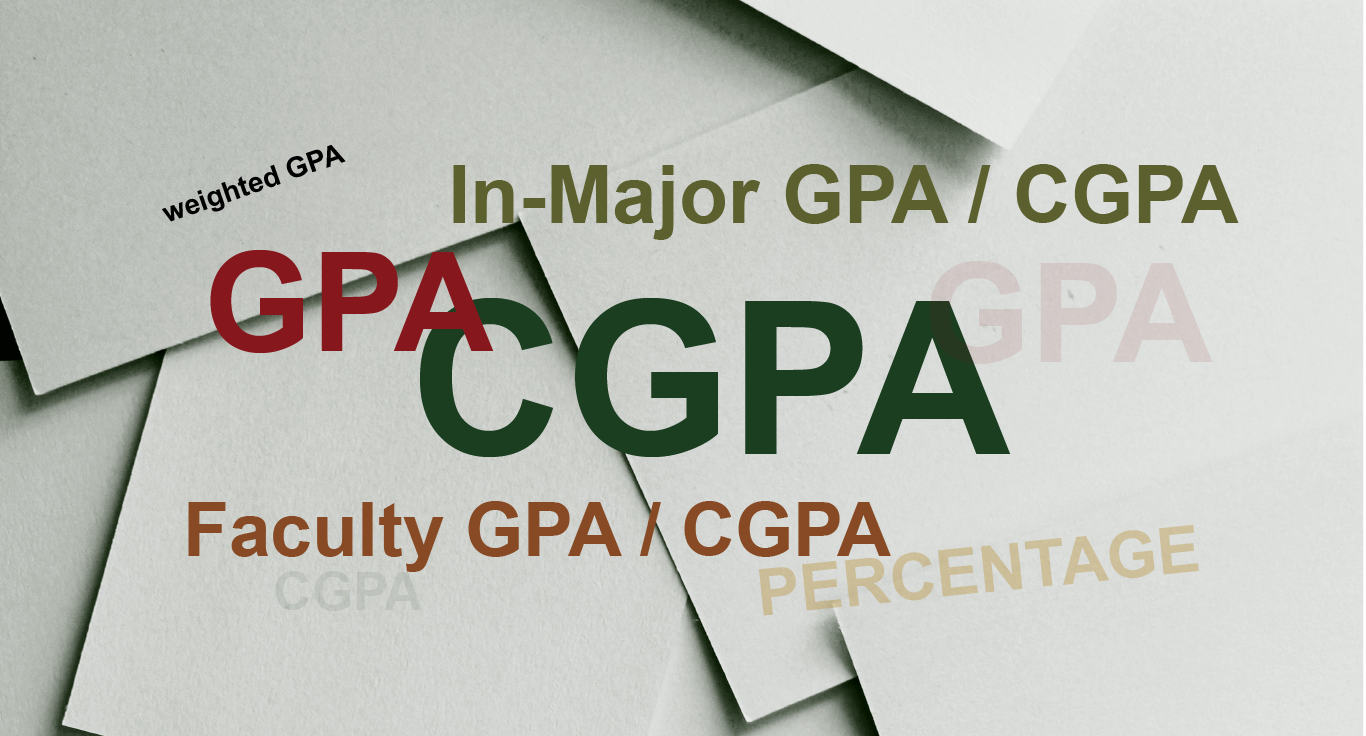Study Guide
Do Colleges Look at Weighted or Unweighted GPAs?
Academic performance plays a crucial role in the competitive landscape of college admissions. Grade Point Average (GPA) is a fundamental metric that colleges consider when evaluating applicants.
However, there is often confusion surrounding whether colleges prioritize weighted or unweighted GPAs.
This article aims to clarify this topic, exploring the definitions, comparisons, and implications of weighted and unweighted GPAs in college admissions.
Understanding Weighted and Unweighted GPAs
To comprehend the distinction between weighted and unweighted GPAs, it is essential to understand their definitions and calculation methods.
Weighted GPA
A weighted GPA measures a student’s academic performance that considers the difficulty or rigor of the courses they have taken.
It assigns additional points to grades earned in more challenging classes, such as honors, Advanced Placement (AP), International Baccalaureate (IB), or dual enrollment courses.
To calculate a weighted GPA, you typically follow these steps:
Determine the grading scale: Each school or district may have a specific one. The most common scale assigns points as follows:
A: 4.0 (or the maximum grade point for the scale)
B: 3.0
C: 2.0
D: 1.0
F: 0.0
Identify the weight assigned to each class type: Check with your school for the specific weight assigned to honors, AP, IB, or dual enrollment classes. The additional points can vary, but adding 0.5 or 1.0 extra points is common practice.
Determine the course type: Classify each course you have taken as regular, honors, AP, IB, or dual enrollment.
Assign the appropriate grade points: For each course, assign the corresponding grade points based on the grading scale and the weight assigned to that course type. Add the extra points for honors, AP, IB, or dual enrollment courses.
Calculate the weighted GPA: Calculate the weighted GPA by summing up all the grade points earned in each course and dividing by the total number of courses.
Here’s a simplified example to illustrate the calculation:
Course 1: Regular English (B, 3.0)
2nd Course: Honors Math (A, 4.0 + 0.5 extra points)
Course 3: AP Science (A, 4.0 + 1.0 extra points)
Total Grade Points = (3.0 + 4.5 + 5.0) = 12.5
Total Courses = 3
Weighted GPA = Total Grade Points / Total Courses = 12.5 / 3 = 4.17 (rounded to two decimal places)
In this example, the weighted GPA is 4.17, indicating that the student’s grades were positively influenced by taking more challenging courses.
Remember that the specific grading scale and weightings may differ between schools, so it’s essential to consult your school’s policies for accurate calculations.
Want to apply for a student visa in Scotland? Find out how- How To Apply For A Student Visa in Scotland
Unweighted GPA
An unweighted GPA is a grade point average that does not consider the different difficulty levels or weighting of individual courses. It is a simple average of all the grades earned, regardless of the level of the courses.
To calculate an unweighted GPA, you need to follow these steps:
Assign your grades a numerical value on a standard scale (typically 4.0 or 5.0).
A: 4.0 or 5.0 (depending on the scale used)
B: 3.0 or 4.0
C: 2.0 or 3.0
D: 1.0 or 2.0
F: 0.0
Add up all the numerical values of your grades.
Divide the sum by the number of courses or classes you have taken. This will give you an unweighted GPA.
For example, let’s say you have the following grades:
English: A
Math: B
Science: A
History: B
Physical Education: A
Assigning numerical values (assuming a 4.0 scale):
English: 4.0
Math: 3.0
Science: 4.0
History: 3.0
Physical Education: 4.0
Adding up the numerical values:
4.0 + 3.0 + 4.0 + 3.0 + 4.0 = 18.0
Dividing by the total number of courses (5 in this case):
18.0 / 5 = 3.6
In this example, the unweighted GPA would be 3.6.
Find out if Ivy League schools offer athletic scholarships here- Do Ivy League Schools Offer Athletic Scholarships?
Do Colleges Look at Weighted or Unweighted GPAs?
In college admissions, GPA holds significant weight as an indicator of academic performance. Admissions committees evaluate GPAs and other criteria to assess an applicant’s suitability for admission. They examine the numeric value and the context and rigor of a student’s academic record.
Colleges have their preferences and policies regarding weighted and unweighted GPAs. Some institutions prioritize weighted GPAs to recognize students who have challenged themselves with rigorous coursework.
Others focus on unweighted GPAs to evaluate overall academic performance without favoring specific courses. Understanding these preferences and policies is crucial for prospective applicants.
It is important to note that colleges take a holistic approach to admissions. They consider an applicant’s overall profile, including extracurricular activities, essays, recommendation letters, and standardized test scores, alongside GPA.
Admissions committees aim to assess an applicant’s potential, growth, and intellectual curiosity rather than solely relying on GPA.
Why Do Colleges Use Weighted And Unweighted GPAs?
Colleges use both weighted and unweighted GPAs as part of their admissions process to gain a better understanding of a student’s academic performance and to compare students fairly. Here’s why:
Unweighted GPA
An unweighted GPA is based on a standard scale, typically ranging from 0.0 to 4.0, where each grade receives the same value regardless of the difficulty level of the course.
This GPA calculation provides a general overview of a student’s academic performance across all subjects. It helps colleges assess a student’s overall ability to handle coursework and maintain a consistent level of achievement.
Weighted GPA
A weighted GPA takes into account the difficulty level of the courses a student has taken by assigning extra points to more challenging classes.
Advanced Placement (AP), International Baccalaureate (IB), honors, or dual enrollment courses are often given additional weight, typically on a scale of 0.5 to 1.0.
By using a weighted GPA, colleges can acknowledge and reward students who have taken more rigorous courses and demonstrated their ability to excel in challenging academic environments.
The purpose of using both weighted and unweighted GPAs is to provide a comprehensive view of a student’s academic performance.
This dual approach allows colleges to evaluate applicants with different academic backgrounds fairly and consider the context of their achievements within the educational opportunities available to them.
What Do College Admissions Departments Say About GPA?
College admissions departments consider GPA as one of the important factors in the admissions process. However, it’s important to note that different colleges and universities may have their own specific guidelines and criteria for evaluating GPA.
Here are some general statements and perspectives that college admissions departments may express regarding GPA:
GPA as a measure of academic achievement
Admissions departments often view GPA as an indicator of a student’s academic performance and ability to handle the rigor of college-level coursework. It provides insight into a student’s consistency, work ethic, and dedication to their studies.
Contextual evaluation
Admissions officers understand that GPA alone does not provide a complete picture of a student’s abilities or potential.
They take into account the context in which the GPA was earned, such as the rigor of the high school curriculum, available resources, and any extenuating circumstances that may have affected academic performance.
Consideration of course selection
Admissions departments value the rigor of the courses taken by students. They may take into account factors such as whether a student challenged themselves by taking advanced or honors classes, or if they pursued a specialized academic track, such as STEM or humanities.
Holistic approach
While GPA is an important factor, admissions officers typically take a holistic approach to evaluating applicants.
They consider a range of factors, including standardized test scores, extracurricular activities, essays, letters of recommendation, and personal qualities.
This approach allows them to assess the overall potential, achievements, and fit of the applicant within the college community.
Variation among colleges
Admissions policies and priorities can vary among colleges and universities. Some institutions may place greater emphasis on GPA, while others may consider it alongside other factors or prioritize different aspects of an application.
It’s essential for applicants to research and understand the specific admissions criteria of each institution they are applying to.
Does MoMa have a student discount? Find out here- Does MoMA Have a Student Discount? | How to Get MoMA Student Discount
Case Studies and Examples
To gain a better understanding of how colleges approach GPAs, let’s examine two Case studies:
A. Case study 1: College X’s approach to weighted GPA
College X prioritizes weighted GPAs in their admissions process. They believe that students who have taken challenging courses and performed well demonstrate their ability to thrive in a rigorous academic environment.
Admissions officers at College X consider the difficulty and rigor of courses when evaluating applicants. They value students who have pushed themselves academically and have succeeded in advanced coursework.
College X also considers the context of each student’s high school and the availability of advanced courses. They understand that not all high schools offer the same challenging courses.
Therefore, they consider the relative difficulty of the courses within each student’s school and evaluate their performance accordingly.
B. Case study 2: College Y’s approach to unweighted GPA
College Y takes a different approach and focuses on unweighted GPAs in its admissions process.
They believe evaluating students based on their overall academic performance, regardless of course difficulty, provides a fair and equal assessment.
College Y considers the consistency of academic achievement across all courses rather than favoring specific advanced courses.
College Y values a well-rounded academic profile and looks for applicants who have excelled in various subjects.
They believe that students who demonstrate strong performance across various courses are better prepared for the diverse academic challenges they may encounter in college.
College Y also considers the overall strength of an applicant’s high school and the opportunities available.
These case studies illustrate that colleges prefer weighted and unweighted GPAs differently. Students must research and understand the admissions criteria of the colleges they are interested in to align their course selection and academic performance accordingly.
Find out the best music schools in San Diego here- Best Music Schools in San Diego | Cost, Requirement & How To Apply
Recommendations for High School Students
Navigating the complexities of GPAs and the college admissions process can be challenging for high school students. To optimize their chances of admission, students should consider the following recommendations:
A. Focus on academic performance and course selection:
- Prioritize learning and mastering the material rather than solely focusing on GPA.
- Take challenging courses that align with your interests and academic strengths.
- Seek opportunities for intellectual growth and pursue extracurricular activities that complement your academic pursuits.
B. Understanding colleges’ preferences and policies:
- Research and familiarize yourself with the admissions criteria of the colleges you are interested in.
- Determine whether the colleges you’re considering weight GPAs and how they evaluate course rigor.
- Consider contacting college admissions offices or attending information sessions to clarify any uncertainties.
C. Maintain a balance between course rigor and academic performance:
- Strive for academic excellence in all your courses, regardless of weighting.
- Seek challenging coursework when appropriate, but ensure you can handle the workload effectively.
- Balance your course load to include a mix of challenging and manageable courses.
D. Highlight course rigor in your college applications:
- Provide context and explanations for the courses you’ve taken in your application materials.
- Emphasize the difficulty of the courses and your achievements within them.
- Use supplementary materials like recommendation letters and essays to showcase your academic abilities and growth.
E. Consider alternative measures of academic strength:
- Standardized test scores like the SAT or ACT can provide additional evidence of your academic capabilities.
- Demonstrate your commitment to learning through research projects, independent studies, or advanced coursework outside school.
- Showcase any academic achievements or honors you’ve received that reflect your dedication and intellectual curiosity.
F. Seek guidance from counselors and mentors:
- Consult with your high school counselor to ensure you meet graduation requirements and take appropriate courses.
- Seek advice from teachers, mentors, or older students who have undergone college admissions.
- Utilize their expertise to navigate the complexities of GPA calculation and course selection.
G. Focus on personal growth and well-rounded development
- Engage in extracurricular activities, community service, and leadership roles to demonstrate your holistic development.
- Cultivate strong interpersonal skills, critical thinking abilities, and a passion for lifelong learning.
- Remember that college admissions committees consider factors beyond GPA, so aim for a well-rounded profile.
Frequently Asked Questions
Weighted GPAs consider the courses’ difficulty by assigning additional points for honors, Advanced Placement (AP), or International Baccalaureate (IB) courses. On the other hand, unweighted GPAs do not assign any extra points and are based solely on the grades earned in all courses.
Colleges have varying preferences when it comes to weighted or unweighted GPAs. Some colleges prioritize weighted GPAs as they value the rigor and challenge of advanced courses. Other colleges focus on unweighted GPAs to evaluate overall academic performance without considering the course difficulty.
Colleges evaluate course rigor by considering factors such as the type of courses taken (e.g., honors, AP, IB), the number of advanced courses, and the overall difficulty of the curriculum available at the student’s high school. They aim to understand the context of the student’s academic environment and assess their ability to handle challenging coursework.
In general, colleges understand that unweighted GPAs do not reflect the courses’ difficulty. However, some highly selective colleges may place greater emphasis on weighted GPAs and advanced courses. Students must research individual colleges’ preferences and policies to understand how unweighted GPAs may be evaluated in their specific case.
The importance of weighted or unweighted GPAs varies among colleges. While some colleges value weighted GPAs to assess a student’s ability to excel in challenging courses, others prioritize overall academic performance and do not consider the course difficulty. Students must research and understand the preferences of the colleges they are interested in.
Conclusion
In conclusion, the college admissions process encompasses a holistic evaluation, considering various aspects of an applicant’s profile.
While GPA is significant, understanding colleges’ preferences and balancing course rigor and overall development is key to presenting a comprehensive and compelling application.
By doing so, students can demonstrate their potential to excel academically and contribute meaningfully to the college community.
References
- Sparkadmissions.com– Do Colleges Count Unweighted or Weighted GPAs?
- Prepscholar.com– Do Colleges Use Weighted or Unweighted GPA?
- Albert.io– Do Colleges Look at Weighted or Unweighted GPAs?
- Quadeducationgroup.com– Do Colleges Look at Weighted GPA?
Recommendations
- 15 Good & Best Pets for Busy College Students
- What is the Highest GPA Ever, And How To Get It
- Does GPA Matter in College, and How Can You Raise it Higher?
- Is A 1.5 GPA Good? Colleges That Accept A 1.5 GPA
- Is a 4.0 GPA Good? Colleges That Accept a 4.0 GPA
- GRE Vs. MCAT | Top 15 Key Differences
- Is a 1.7 GPA Good? Colleges That Accept a 1.7 GPA






